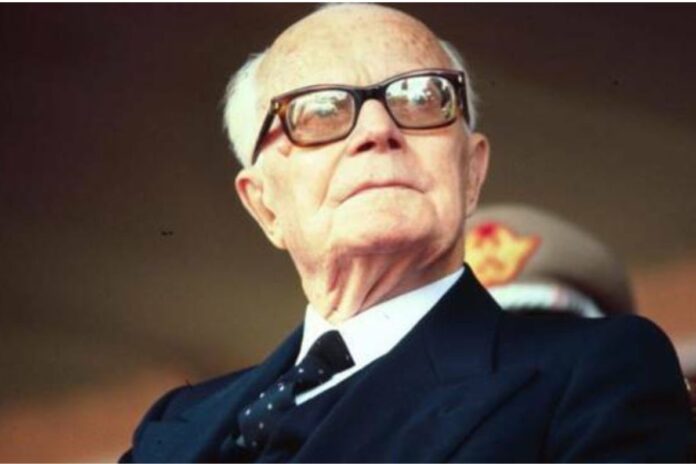Alessandro “Sandro” Pertini (25 September 1896 – 24 February 1990) was an influential Italian socialist politician and statesman. He served as the President of Italy from 1978 to 1985, becoming one of the most beloved figures in Italian political history. Pertini was known for his strong commitment to democracy, social justice, and his role in shaping post-war Italy. His presidency was marked by a focus on national unity and addressing Italy’s political and economic challenges. He remains a symbol of moral integrity and dedication to the Italian people.
Introduction:
Sandro Pertini is a name synonymous with courage, integrity, and a deep sense of justice. As the seventh President of Italy, his life was marked by resilience in the face of adversity and a dedication to democratic values. Known for his charismatic presence and unwavering commitment to the Italian people, Pertini’s legacy continues to inspire. This article takes a closer look at the extraordinary life of Sandro Pertini, examining his rise to prominence, his role in Italian history, and the qualities that made him one of Italy’s most beloved figures.
Who Was Sandro Pertini?
Sandro Pertini, born in 1896, was an Italian politician and journalist who became an emblem of democratic ideals. Known for his strong leadership during a pivotal time in Italy’s history, Pertini led the country through the post-WWII era and beyond, leaving an indelible mark on Italian politics and society. He served as Italy’s President from 1978 to 1985, a period that saw political instability but also great reforms.
Early Life and Struggles
Born in the small town of Stella, in the province of Savona, Sandro Pertini came from humble beginnings. His early life was marked by a fierce passion for justice and his eventual involvement in the anti-fascist resistance during World War II. Pertini’s political journey began in the youth leagues of the Italian Socialist Party, but it was during the war that he cemented his reputation as a fighter for liberty.
Key Early Milestones:
- Resistance Fighter: Pertini joined the partisan movement during the Nazi occupation of Italy and played a significant role in the anti-fascist struggle.
- Imprisonment: His activities led to his imprisonment by the fascists. He was later released but remained a target for fascist forces throughout the war.
- Political Shift: After the war, Pertini emerged as a key figure in the Italian Socialist Party, where he worked to rebuild Italy and strengthen its democracy.
Political Rise and Presidency
Pertini’s rise to political prominence was fueled by his commitment to socialism, his integrity, and his ability to inspire those around him. His popularity skyrocketed as a result of his leadership during some of Italy’s most turbulent times.
As President of Italy:
When Pertini became President in 1978, Italy was in the midst of political turmoil. The country faced a series of challenges, including widespread terrorism from groups like the Red Brigades and the economic struggles that came with it. Pertini stood as a unifying figure for Italians, embodying the values of democracy and liberty.
Key Presidential Achievements:
- Moral Leadership: Pertini was a staunch advocate for democracy, freedom, and peace. His speeches and actions often served as moral guides for the nation.
- Popular President: Known for his approachable and humble demeanor, Pertini became a beloved figure, connecting deeply with the people. His actions as president reflected the values that had driven him throughout his life.
- International Diplomacy: Sandro Pertini worked tirelessly to elevate Italy’s role on the world stage, representing the country with dignity and wisdom in international affairs.
Pertini’s Legacy:
Sandro Pertini’s presidency was marked by several defining moments, but perhaps his greatest legacy lies in his embodiment of honesty and courage in leadership. His personal integrity made him a symbol of the ideal leader who always put the needs of the people first.
Courage and Integrity
Pertini was known for his outspoken stance against corruption and his dedication to upholding the Italian Constitution. His moral clarity in the face of Italy’s turbulent political climate made him a guiding light during the most challenging times.
- Symbol of Resistance: His early resistance against fascism gave him a strong moral authority that persisted throughout his presidency.
- Commitment to Democracy: Pertini was a fierce protector of Italy’s democratic principles, which he believed were essential to the nation’s progress.
Pertini’s Impact on Italian Politics
Even after his presidency, Pertini continued to influence Italian politics. His calls for a stronger, more unified Italy resonated with generations of leaders. His presidency played a key role in shaping Italy’s modern political landscape, particularly in fostering a culture of political transparency and democratic engagement.
Frequently Asked Questions About Sandro Pertini
What was Sandro Pertini known for?
Sandro Pertini was known for his moral integrity, his resistance against fascism, and his dedication to democracy. As Italy’s president, he was beloved for his straightforward leadership and his ability to unite the nation.
When was Sandro Pertini President of Italy?
Sandro Pertini served as the seventh President of Italy from 1978 to 1985.
What is Sandro Pertini’s legacy?
Pertini’s legacy is that of a moral leader who stood for the values of freedom, democracy, and justice. His presidency is remembered for its clarity of vision and its strong commitment to the Italian people.
Wrapping Up:
Sandro Pertini’s life is a testament to the power of integrity and resilience. From his early days as a resistance fighter to his years as a beloved president, his legacy continues to inspire Italians and the world at large. His leadership remains a beacon for those who believe in the importance of democracy, justice, and the unwavering commitment to doing what is right.
Sandro Pertini’s impact on Italy cannot be overstated. He not only served as a president but also as a symbol of what it means to lead with honor, courage, and a deep love for one’s country. His legacy is woven into the fabric of Italian history and continues to be celebrated by those who remember him as a true hero of the people.




